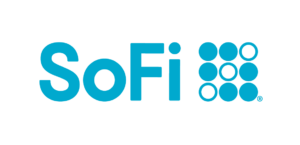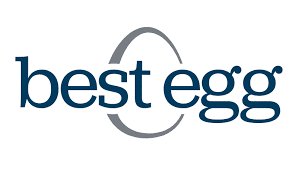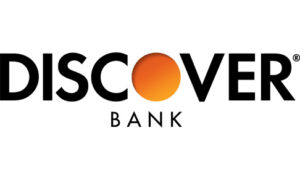Do you have a mountain of debt and worry about money? You are not alone. According to the American Psychological Association, 72% of adults stress about money, auto loans, paying rent, or feeling overwhelmed by debt.
Debt consolidation can be the solution – if you do it correctly.
Table of Contents
DebtHammer can help
Whether you have $1,000 in payday loan debt or more than $7,500 in credit card bills and other types of unsecured debt, DebtHammer can help you crush your debt.
DebtHammer offers a free consultation with no obligation to sign up.
We are not lenders. We offer loan broker services and work to match you with one of the lenders in our network. We will compare more than 15 personal loan options to assess your eligibility and determine whether debt consolidation is your best next step.
This saves you from having to submit multiple applications, which will lead to hard credit inquiries that will lower your credit score. With our process, your credit score won’t take a hit because our inquiries only require a soft credit pull.
Lenders we work with include OneMain Financial, Lending Club, SoFi, Happy Money, Upstart, LightStream, Avant, Upgrade, BestEgg and Universal Credit.
DebtHammer’s team of experts will help you compare your options to determine which customized strategy works best for your financial situation. If a debt consolidation loan is not your best option, we will let you know and will review your other financial products.
Looking for a debt consolidation loan?
We may be able to help. It’s easy and free to find out.
We also offer debt settlement services. When you enroll in our debt settlement program, expert negotiators will work with your creditors to reduce the amount you owe. This can get you out of debt in a shorter amount of time.
Research shows that the average debt settlement client will repay a total of about 80% of the full amount they owe, after fees.
There is no minimum credit score required to apply. Our lenders are willing to work with borrowers who have little to no credit history.
DebtHammer’s blog and social media pages also offer an array of tips ranging from how to start a savings plan, the best personal finance blogs to check out and how to rebuild your credit score.
Ten more top debt consolidation loans
If you prefer to find your own debt consolidation loan, here are ten lenders we recommend, even if you have bad credit.

1. Upstart
- Loan rates: 7.8% to 35.99% APR
- Loan amount: $1,000 up to $50,000
- Loan terms: 36 to 60 months
- Credit check: Yes, they make a hard inquiry after a profile submission to verify you meet their credit minimum
- Minimum credit score: 580
- Application process: Apply online. The Upstart loan timeline includes around 1 to 14 business days to get approved for an Upstart loan and another 1 to 3 business days for the funds to be deposited into your bank account.
- Prequalification: Upstart says borrowers can prequalify and see their rate in five minutes. They can expect approval to take one business day.
- Other noteworthy information: No prepayment penalty, an origination fee of up to 8% of the loan amount, no mobile app, and no co-signed, joint, or secured loans offered. The minimum income requirement is $12,000.

2. PenFed Credit Union
- Loan rates: 7.99% to 17.99% APR
- Loan amount: $600 up to $50,000
- Loan terms: One to five years
- Credit check: Yes, applicants can prequalify with a soft credit check
- Minimum credit score: None, but best for 690 or better
- Application process: Apply online
- Prequalification: Borrowers must belong to the PenFed Credit Union
- Other noteworthy information: Accounts can be managed online or via mobile app and allow joint applications. Available in all 50 states.

3. Rocket Loans
- Loan rates: 9.116% (rate with autopay discount) to 29.99% (rate without autopay discount)
- Loan amount: Up to $45,000
- Loan terms: Three to five years
- Credit check: Yes, the prequalification process only requires a soft credit check
- Minimum credit score: 580
- Application process: Online and receive funds in two to four business days.
- Prequalification: Offers same-day approval, and same-day funding may be possible
- Other noteworthy information: No prepayment penalty, rate discount on autopay, no co-signers or co-applicants.

4. SoFi
- Loan rates: 8.99% to 29.49% APR
- Loan amount: Up to $100,000
- Loan terms: Two to five years
- Credit check: Yes, a hard credit pull, which may impact your credit score, is required if you apply for a SoFi product after being prequalified
- Minimum credit score: 680
- Application process: Their loan applications begin our initial review within one business day, and most of our applications are completed within two business. The application process is completed entirely online
- Prequalification: Yes, online with a soft pull
- Other noteworthy information: low rates, no origination fees, no prepayment fees, or other “hidden fees,” You can view rates in as little as 60 seconds. You have access to customer support seven days a week.

5. Upgrade
- Loan rates: 8.49% to 35.99% APR
- Loan amount: Up to $50,000
- Loan terms: Two to seven years
- Credit check: Yes
- Minimum credit score: 560
- Application process: Apply online and receive a response within one to four business days, but it could take longer if Upgrade requests additional documents.
- Prequalification: Yes, online with a soft pull
- Other noteworthy information: You’ll get a 0.5% interest rate discount for automatic payments, and you may also get a rate discount if you opt for direct payment to creditors. You will pay an origination fee, and late payment fees will be assessed if you don’t pay by the due date. You will need at least fair credit to qualify. Upgrade allows joint loans, cosigners, and secured loans, providing an unusual range of options.

6. Lending Club
- Loan rates: 9.57% to 35.99% APR
- Loan amount: Up to $40,000
- Loan terms: Three or five years
- Credit check: Yes
- Minimum credit score: 600
- Application process: Apply online and you’ll usually receive a response within seconds, but at the latest by the end of the next business day.
- Prequalification: None
- Other noteworthy information: You will pay an origination fee from 3% to 8%, and there are fees for late payments. This is a fairly standard loan package; if you have good credit, you might be better off with one of the no-fee loan options.

7. BestEgg
- Loan rates: 8.99% to 35.99% APR
- Loan amount: Up to $50,000
- Loan terms: Three or five years
- Credit check: Yes
- Minimum credit score: 640
- Application process: Apply online, and you’ll usually receive a response within one to three business days
- Prequalification: Yes, with a soft credit check
- Other noteworthy information: BestEgg offers a secured loan. If you own a home, you can use it as collateral and get a better rate. If you don’t pay, you could lose your home, so be sure you afford the payments. BestEgg will pay your creditors directly. There’s no rate discount for autopay, and you will pay an origination fee.

8. Discover
- Loan rates: 7.99% to 24.99% APR
- Loan amount: Up to $40,000
- Loan terms: Three or five years
- Credit check: Yes
- Minimum credit score: 660
- Application process: Apply online and you’ll usually receive a response within one to three business days
- Prequalification: Yes, with a soft credit check
- Other noteworthy information: Discover also offers balance transfer credit cards, home equity loans and student loan consolidation options.

9. Personalloans.com
- Loan rates: 5.99% to 35.99% APR
- Loan amount: Up to $35,000
- Loan terms: Two to eight years
- Credit check: Yes, a soft credit check
- Minimum credit score: 610
- Application process: Apply online and receive a response within seven days
- Prequalification: Yes
- Other noteworthy information: Personalloans.com partners with traditional lenders, but also tribal lenders. Tribal lenders are notorious for charging exceptionally high interest rates (even rates that are technically prohibited due to state laws). Read all loan offers carefully and review the payment schedules before you make any commitment.
Pro tip: If your only borrowing option is from a tribal lender, you will be better off not consolidating at all. Tribal loans are even more dangerous than payday loans or title loans. Instead, consider other debt-relief options. A tribal loan sets you up for failure.

10. Badcreditloans.com
- Loan rates: 5.99% to 35.99% APR
- Loan amount: Up to $10,000
- Loan terms: Up to three years
- Credit check: No
- Minimum credit score: No minimum
- Application process: Apply online and receive a response as soon as the next business day
- Prequalification: Yes
- Other noteworthy information: Badcreditloans.com is a secure platform that’s easy to use, and they don’t charge additional fees. However, interest rates will likely be on the higher end because they don’t use credit scores to determine eligibility.
Pro tip: Make sure you make on-time payments toward your new loan. You don’t want to risk the lender increasing your interest rate.
How debt consolidation works
Debt consolidation rolls all outstanding debts into a single loan with one monthly payment. In order for it to be effective, the new loan will need to have a lower interest rate than the rates you’re currently paying. Because you’re rolling multiple debts into a single loan, this is referred to as “consolidating” your debt. You’ll be left with a single loan payment, and depending on the repayment term, the payment could be considerably lower than what you currently pay each month.
You then use your new loan to pay off other existing loans with higher interest rates.
READ MORE: Debt consolidation pros and cons
Pro tip: Debt consolidation can save you thousands of dollars in credit card interest over your repayment term if you qualify for the lowest rates.
Debt consolidation could be a good option for borrowers with more than $7,500 in unsecured debts, particularly if those debts have high or variable annual percentage rates. If you can secure a low fixed rate, this new loan can save you a lot of money over the life of the loan.
Creditworthiness will be the primary factor used to determine whether you’ll qualify for a new loan.
Debt consolidation won’t wipe out your balance. It just rolls it into one large monthly payment. If you have decent to good credit, a new loan with a lower interest rate will save you money.
READ MORE: Does debt consolidation close credit cards?
Pro tip: Debt consolidation may not always be the best choice for everybody. Taking on new debt is risky. Borrowers with poor credit scores face rejection or could end up with even worse terms than their existing debts if you can’t afford the minimum payments. You must know each card’s interest rates and balances to see if debt consolidation is right for you.
READ MORE: Debt consolidation loans for bad-credit borrowers
Which types of debt can I consolidate?
Debt consolidation can pay off all types of unsecured loans — including credit card balances, medical bills, etc. Unlike credit cards, which are a form of revolving credit, debt consolidation loans are installment loans.
Pro tip: Applicants with excellent credit scores will most likely qualify for the best loan offers. Review your credit reports before you start the consolidation process to learn where you stand.
Here’s a comparison of how much debt consolidation can save by consolidating $10,000 in debt.
| Current loan | Consolidated loan | |
| Loan amount | $10,000 | $10,000 |
| Interest rate | 19.99% | 7.5% |
| Repayment term | Two years | Two years |
| Monthly payment | $508/month | $450/month |
| Total interest paid | $2,203 | $800 |
| Total paid | $12,203 | $10,800 |
This means you’ll save $1,403 in interest over two years, plus pay $58 less per month.
READ MORE: How divorce affects debt consolidation
Now, let’s look at the same example over a longer loan term:
| Current loan | Consolidated loan | |
| Loan amount | $10,000 | $10,000 |
| Interest rate | 19.99% | 7.5% |
| Repayment term | Five years | Five years |
| Monthly payment | $264/month | $200/month |
| Total interest paid | $5,863 | $2,023 |
| Total paid | $15,863 | $12,203 |
By consolidating, you’ll save $3,360 in interest over five years and pay $64 less per month.
READ MORE: Debt consolidation loans for military veterans
How much money should you borrow?
This depends on your total amount of credit card debt, but you should ensure that you can borrow enough to cover all of the higher-interest debts you need to consolidate.
Pro tip: When you total your debts, be sure also to document the interest rate you’re paying. If you have lower-interest debts, like a home-improvement loan with a 1.9% APR or a 0% APR offer from a furniture store, it won’t make sense to consolidate these into high-interest debt.
Once you’ve calculated the new loan amount, be sure to account for any origination fees. For example, if you’re requesting $20,000 and the loan has an origination fee of 5%, you’ll actually need to borrow $21,000.
READ MORE: How debt consolidation affects your credit score
Pro tip: You could worsen your financial situation if you don’t borrow enough money. Be sure to use a debt consolidation calculator to figure out what makes sense for your particular needs.
READ MORE: Debt consolidation if you’re unemployed
Other debt relief options
- Credit counseling
- Balance transfer credit card
- Home equity lines of credit
- Mortgage refinance
- Bankruptcy
READ MORE: Best debt consolidation options for married couples
The bottom line
If you’re struggling to make too many monthly payments or your interest rates are very high, debt consolidation could be the answer. By rolling all of your debt payments into one single payment, you can ease your budget crunch and get your finances back on track.
Qualifying for a new loan could be tricky if you have bad credit, so it’s important to review your debts and your credit reports before you begin the consolidation process.


